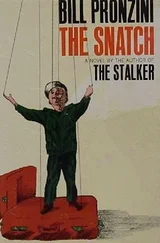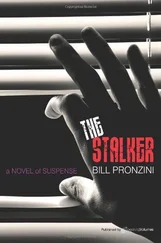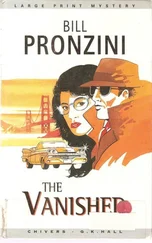He was in there, not in the bathroom, dressed in dry trousers and a long-sleeved shirt and sitting slumped on the far side of the bed. The room was cold, very cold—the fire’s heat didn’t reach back here—but for some reason he’d failed to button the shirt. The candle he’d brought in was on the dresser in front of him; its trembling flame created a restless play of shadows across his face, so that the skin seemed to be rippling like dark water.
“Jay?”
He mumbled something she couldn’t hear over the wailing and whining of the storm.
“What’s the matter? Aren’t you feeling well?”
He winced as if with a sudden spasm, lifted a hand, and then let it drop onto his lap.
Shelby went around the bed, bent to hold the candle up close to his face. It was difficult to tell in the pale light, but his color didn’t look good. She pressed the back of her hand against his forehead. Cool, sweaty. And his respiration seemed even more labored.
Red flags. Alarm bells.
“Do you have any pain?”
No answer.
“Dammit, Jay. Do you have any pain?”
“Yes.”
“Where?”
He winced again, squeezed his eyes shut.
“Answer me. Where do you hurt?”
“… Chest. Left arm.”
Oh my God!
“Anywhere else?” she asked. “Radiating down your arm, into your back?”
“No.”
“Describe the pain to me. Sharp, dull, crushing … what?”
“Like a … hand squeezing.”
“How much trouble getting your breath?”
“A little.”
“Nauseous?”
“A little.”
“How bad was the pain when it started? Scale of one to ten.”
“… Five, six.”
“And now?”
“I don’t know … not as bad. Three, four.”
“Tingling sensation in your fingers?”
“Yes.”
“Lie back on the bed, knees up,” she said, and helped him into that position. She felt his neck—the veins weren’t distended. And there was no pedal edema in his feet and ankles. Quickly she got a blanket from the closet and covered him with it. “Don’t move. I’ll be right back.”
She hurried to the utility porch, swept her raincoat off the hook, found the car keys, and ran outside with the coat draped over her head. Her jump bag was in the Prius’s trunk, where she always kept it for work and emergencies. She rushed back inside with it, stopping on the way for another lighted candle. In the bedroom she set the bag on the bureau, opened it.
Stethoscope, blood pressure cuff, pulse oximeter, bottle of chewable baby aspirin. She pulled the blanket down to expose Jay’s chest, listened to his lungs with the stethoscope. Slightly wet-sounding. She clipped the oximeter to his index finger, then took his pulse. Rapid, too rapid—125 beats per minute. Rolled up one shirtsleeve, strapped the cuff around his arm, pumped it up, read the pressure gauge by candle flame. 185 over 100. High. Checked the digital reading on the oximeter: 92 percent blood oxygen saturation. Low, on the edge of the danger zone.
“Am I going to die?” he said.
“Not if I can prevent it.”
She buttoned his shirt, pulled the blanket back up under his chin.
“… Pills,” he said.
“I’m going to give you aspirin—”
“No … in my shaving kit. Prescription vial, little white pills.”
Prescription vial, little white pills. “Jesus, Jay—you’ve been taking nitroglycerin?”
“Yes.”
In the bathroom she rummaged through his kit, found the bottle of nitro tablets. The doctor’s name was Prebble—a name she recognized, a well-known South Bay cardiologist. Jay had been to see Prebble, had had heart medication prescribed, and hadn’t told her. Why the hell not?
Well, she knew the answer to that, didn’t she.
She gave him the baby aspirins first, to make the platelets in the damaged artery less sticky, minimize the threat of blood clot formation, and prevent further blockage. When he’d chewed and swallowed them, she shook out two of the tiny nitro tablets and put them under his tongue to dissolve. Then she pawed through her bag again. She had a large portable bottle of oxygen, a Jumbo D, but on a mask it would run at ten to fifteen liters per minute—half an hour at most before it ran dry. Might be better to put him on a cannula instead; it could run at two to six liters per minute, providing a smaller increase over a longer period of time to bring his O2 level back as close to 100 percent as possible. Depended on what the next blood pressure reading showed.
“How’s the pain now?”
“Better. Mostly gone.”
“Still having that squeezing sensation?”
“No.”
“Difficulty breathing?”
“Not anymore.”
“The nausea?”
“Gone.”
“All right, good. Just keep still.”
Shelby listened to his lungs again; the faint wetness was barely discernible. His pulse rate had slowed and steadied at 80. He wasn’t sweating any longer, but his forehead, cheeks, and neck felt even cooler than before. At her touch a shiver went through him. And when she ran fingers over his arm, she felt the goose bumps that had formed there.
She dragged a pillow off the bed, hurried with it into the living room. The fire had begun to bank; she fed it quickly, leaving the fire screen open. She managed to shove the heavy couch over close to the fire, then took three more logs from the wood box and set them on the hearth bricks close by.
Back in the bedroom, she asked Jay if he thought he could sit up.
“I can try.”
She helped him into a sitting position. “Any more pain?”
“No.”
“Okay. Let’s see if you can stand up and walk.”
“Where?”
“Out by the fire. You can’t stay in here—it’s too cold.”
She wrapped the blanket around him, holding it closed with one hand. Got him up off the far side of the bed without difficulty; training, all the running and working out she did, had given her the strength to move and support bigger men than Jay. He was a little wobbly, but he didn’t sag in her grasp.
“Light-headedness? Discomfort of any kind?”
“No.”
She told him to lean on her and take a step, then another. His knees didn’t buckle.
“Slow, now,” she said, “baby steps.”
Out of the bedroom, down the hall, across to the couch. She eased him down on it, arranged the pillow under his head, drew his knees up and tucked the blanket around him. Returned to the bedroom long enough to pull the comforter off the bed, pick up her jump bag and the oximeter and pressure cuff. She covered Jay to the neck with the comforter, leaving one arm exposed, then put the oximeter on his finger and the cuff around his arm and took the readings.
Blood oxygen saturation at 95 percent. Blood pressure at 160 over 80—the nitro tablets had lowered it some but it was still too high. Better go with the cannula. She took it and the Jumbo D and mask from her bag, set the bottle on the floor at the end of the couch farthest from the fire, at the same time running through the litany of questions with him again. The answers he gave were the ones she wanted to hear. She put the cannula on him and started the oxygen flowing.
Stable now—temporarily.
Shelby stood looking down at him, for the first time letting her emotions break through the professional mind-set. A whole conga line of them—cautious relief, compassion, sadness, anger, frustration, tenderness. Love, too, no use denying it. What else would make her eyes start to tear up the way they were now?
You poor damn fool, she thought—and she wasn’t sure if she meant Jay or herself or both of them.
S E V E N T E E N
MACKLIN HAD KNOWN HE was having a heart attack as soon as the pain started. He’d just gotten out of the shower, dried off, and was putting his shirt on over a dry pair of jeans. It wasn’t the hammer blow that would’ve taken him out right away, just that squeezing sensation and the increased difficulty in getting enough air into his lungs. The bed was as far as he got before the worsening pain and the other symptoms sat him down. He’d tried to call out to Shelby, couldn’t seem to raise his voice above a low, feeble cry.
Читать дальше












